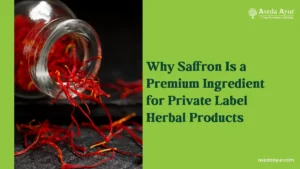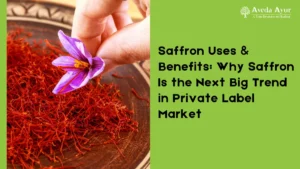Heart palpitations (pal -TAY-shuns), are feelings that cause a rapid-beating, fluttering, or pounding heart. They can be triggered by stress, exercise, medication, or a rare medical condition.
Heart palpitations are not usually dangerous, although they can be alarming. They can sometimes be a sign of a more serious condition such as arrhythmia (an irregular heartbeat) which may require treatment.
Heart Palpitations Signs and Symptoms:
- You may feel your heart beating faster than you think.
- Skipping beats
- Fluttering quickly
- Beating Very fast
- Pounding
- Flip-flopping
- Heart palpitations can be felt in the neck or throat, as well as in the chest. These can happen when you are active or at rest.
Heart Palpitations Causes
Sometimes, the reason for your heart palpitations is not obvious. The following are common causes:
- Stress, anxiety, panic attacks, and other strong emotional reactions can be a sign of a high level of stress.
- Depression
- Strenuous exercise
- Stimulants include nicotine, caffeine, cocaine, amphetamines and cold and cough medicines that contain pseudoephedrine.
- Fever
- Hormone changes related to menstruation, pregnancy, or menopause
- Too much thyroid hormone or too little
Heart palpitations may be an indication of a serious condition such as hyperthyroidism (overactive thyroid gland) or abnormal heart rhythms (arrhythmia).
Arrhythmias (heart rhythm changes) can cause an abnormally fast heart beat (tachycardia), bradycardia (bradycardia), or a normal heart rhythm that is different from the normal rhythm.
Heart palpitations Risk factors
If you are having these issues, you could be at risk for developing palpitations.
- High levels of stress
- An anxiety disorder or regular panic attacks
- Pregnancy
- Usage of stimulant medications, such as cold and asthma medication.
- Hyperthyroidism
- Other heart conditions, such as an arrhythmia or a heart defect, or a previous heart attack, are possible.
Heart Palpitations: Treatment Facts
- The cause of your palpitations will determine the treatment. Any underlying medical conditions will be addressed by your doctor.
- Sometimes, the doctor cannot find the cause.
- You may only need to cut down on or eliminate certain substances if your palpitations are caused by lifestyle choices like smoking or excessive caffeine.
- If you believe medication is the problem, talk to your doctor about other treatments or medications.
Heart Palpitations can be Prevented
These steps can be taken to reduce your chances of experiencing palpitations if your doctor says that you don’t need treatment.
- You can identify your triggers to help you avoid them. Keep track of all your activities and the food and drinks you consume. Note when you feel palpitations.
- Relaxation exercises, deep breathing and yoga are great options for stress relief if you feel anxious or stressed.
- Reduce or stop taking caffeine. Avoid energy drinks.
- Don’t smoke or use tobacco products.
- Ask your doctor if a medication causes palpitations.
- Regular exercise is important.
- Maintain a healthy lifestyle
- Reduce alcohol consumption
- Keep your cholesterol and B.P under control.
Heart Palpitations Complications
There is little chance of complications if your heart condition is causing your palpitations. Possible complications for palpitations due to a heart condition include:
- Fainting:- Your blood pressure can drop if your heart beats faster than normal, which can cause you to faint. This is more common if your heart condition, such as congenital or acquired heart disease, or certain valve problems makes it more likely.
- Cardiac arrest:- Rarely, palpitations may be caused by serious arrhythmias. This can lead to your heart stopping effectively.
- Stroke:- Atrial fibrillation is a condition where the heart’s upper chambers stop beating as they should. This can cause palpitations. Clots can form if blood pools. A stroke can be caused by a brain clot that has formed from a clot.
- Heart failure:- If your heart stops pumping effectively for a long time due to an arrhythmia (such as atrial fibrillation), this can lead to heart failure. Sometimes, reducing the arrhythmia rate that causes heart failure can help improve your heart’s performance.
Heart palpitations Ayurvedic perspective:
Three energies that influence the body are Vata, Pitta, and Kapha. These energies determine an individual’s body type and lifestyle. Because everyone is genetically different, the recommendations will vary from person to person. It also depends on the season. Ayurveda’s goal is to achieve equilibrium between doshas, dhatus (body tissues), and malas.
Incorrect food consumption and anxiety can lead to the vitiation rasa dhatus, which is the first tissue among seven Saptdhatus . Heart is the place of Rasa Dhatu. After digestion, rasa is formed. When rasa becomes vitiated, it can cause heart problems.
Also, Ayurvedic treatment identifies the source of imbalance. Every food you eat can have an impact on your body. Ayurveda categorizes this in a simple and straightforward way using gunas, or qualities. Gunas can be described as qualities, such as cold or hot, that indicate the effects a food or herb have on your body.
The metabolism is affected and reduced by cooling foods such as cucumber. Heat foods such as chili pepper can stimulate metabolism and increase metabolism.
Heart palpitations can be caused by an imbalance in one or more of these qualities: sweet, salty, oily, heating, sweet and sour. These qualities should be avoided by anyone suffering from heart palpitations.
Each person is unique and treatment recommendations will differ depending on the cause of your imbalance and your body type. These recommendations could include regular warm meals, adequate rest, gentle breathing exercises and calming treatments such as massage and/or lymphatic drain.
Ayurveda offers a variety of aahaars and vihaar recommendations, along with a few herbs that can be used to treat the symptoms of heart disease.
Heart palpitations Diet Recommendations – Aahaar
- Reduce salt intake
- Pepper and other low- or non-sodium spices can be used to enhance flavor.
- Consume the right amount of fats
- Eat small, frequent meals
- Consume whole grains and other fibrous foods. Get plenty of fresh fruits and vegetables
- Incorporate nuts like almonds, walnuts, and seeds into your daily diet.
- Reduce your intake of caffeine and alcohol
Lifestyle Changes Vihar
- Healthy living includes staying active, quitting smoking and maintaining a healthy body weight.
- It can be very beneficial to practice yoga, meditation, or relaxation techniques.
- The daily activity level should determine how much energy you consume. The body can create fats from excess intake, which will affect the heartbeat rhythm.
- Ten minutes of meditation and breathing exercises per day will reduce stress.
- Arrhythmia can cause loss of control, so avoid being in dangerous places such as ladders, roofs, trees, and cliffs.
Herbs:
Ayurvedic medicine uses a variety of herbs to treat an Abnormal Heart Rhythm. These include Arjuna (Terminalia arjuna), Ashwagandha (Withania somnifera), Punarnava (Boerhavia diffusa), Shankhapushpi(Convolvulus pluricaulis), Brahmi [Bacopa monnieri], Pipal tvak (“Ficus religiosa”), Dalchini (Cinnamon tamala), and Cardamom or elaichi (Elettaria cardamomum) which have natural cardioprotective properties andstrengthen the heart muscle. Although herbs can take some time to manifest their effects, they are able to treat the problem from its root.
Herbal Remedies for Heart Palpitations By Life Aveda
Ayurveda has a permanent and effective treatment of Abnormal Heartbeat. All the Ayurvedic medicines are prepared with herbs which have natural healing powers. Ayurveda is the oldest and traditional medicinal system originated from India.
By using basic principles and fundamentals of Ayurveda, Life Aveda- a trustworthy Ayurvedic brand has prepared some wonderful herbal medicines for the treatment of abnormal heartbeat. All the herbal medicines of Life Aveda are prepared with standardized herbal extracts and formulated under the guidance of experienced Ayurvedic doctors.
Take a look at these marvellous herbal remedies:
- Healthy Beats: As the name indicates, Life Aveda’s Healthy Beats capsules will show their positive effect on the heart and abnormal functioning of heart. These capsules are prepared with standardized extracts of Arjuna, Brahmi, Ashwagandha, Shankhpushpi, Grape Seed and some other herbs. All these medicinal herbs are very beneficial in restoring the heart rate to the normal level.
Dosage: 1 capsule twice daily with warm water 30 to 40 minutes after meals
- (Withania Somnifera) is a traditional Indian herb known for its numerous medicinal uses and health benefits. High-quality extract of Ashwagandha present in Life Aveda’s Ashwagandha capsules will support the healthy state of your heart. Life Aveda’s Ashwagandha capsules will show their action in a completely natural way without giving any side-effects.
Dosage: 1 capsule twice daily with warm water 30 to 40 minutes after meals
- (Bacopa monnieri) is a traditional Indian herb known for its numerous medicinal uses and health benefits. High-quality extract of Brahmi present in Life Aveda’s Brahmi capsules Life Aveda’s Brahmi capsules will show their action in a completely natural way without giving any side-effects.
Dosage: 1 capsule twice daily with warm water 30 to 40 minutes after meals
Conclusion
Palpitations should not be taken lightly. They should be taken care of immediately. The best thing about taking an Ayurvedic treatment is that it has a tendency to catch the root cause. Even though Ayurveda takes a long time to show its results, the one thing that you can stay rest assured about is that it has no side-effects.









